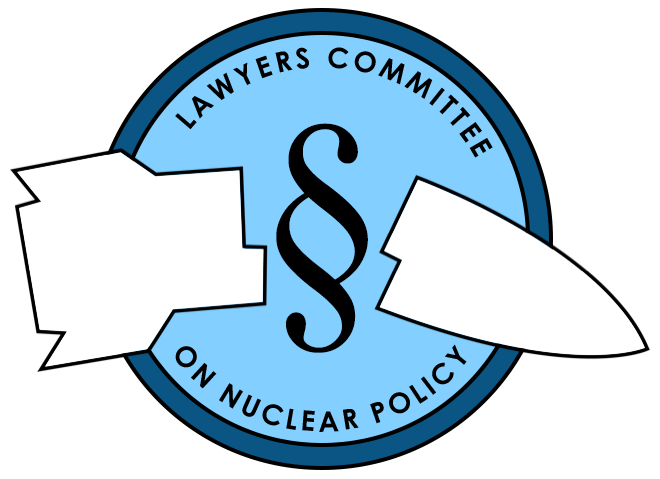Statement to the UN First Committee: Nuclear weapons and the legal norms of non-use and abolition
UNITED NATIONS GENERAL ASSEMBLY,
FIRST COMMITTEE ON DISARMAMENT AND INTERNATIONAL SECURITY
Nuclear weapons and the legal norms of non-use and abolition
Ariana Smith, Executive Director | Lawyers Committee on Nuclear Policy
13 October 2020
Mr. Chairperson and distinguished delegates:
Uncertainty and unrest define our current circumstances. The pandemic, the crippling of economies, and climate-change stoked fires have further revealed vulnerabilities and inequities of our societies as well as new sources of potential conflict, notably climate migration. These circumstances have led to an overdue focus on the kind of world we should leave to coming generations—but the work required for this is not for the coming generations, it is for us, now. And the threat and risk of use of nuclear weapons cannot be part of that world.
We must universally accept as a moral, political, and legal norm the non-use of nuclear weapons. The 2017 adoption of the Treaty on the Prohibition of Nuclear Weapons emphatically affirms this norm as does the unambiguous 2018 finding of the United Nations Human Rights Committee. [1] The Committee stated: “The threat or use of weapons of mass destruction, in particular nuclear weapons, which are indiscriminate in effect and are of a nature to cause destruction of human life on a catastrophic scale, is incompatible with respect for the right to life and may amount to a crime under international law.”
The imperative of non-use of nuclear weapons underlies the Reagan-Gorbachev dictum: “A nuclear war cannot be won and must never be fought.”
The trend toward nuclear arsenal modernization and growth is an affront to the developing norm against the very existence of nuclear weapons as well as a clear violation of law, under Article VI of the Nonproliferation Treaty and the universal obligation affirmed by the International Court of Justice. Instead of trillion-dollar plans to perpetuate weapons of unfathomable destruction, the world needs a process of systematically reducing and eliminating nuclear arsenals.
There is no single right way to accomplish this, but it must be done verifiably, irreversibly, and subject to law. As has been the case for decades, it is urgent to manage and reduce the two 1 General Comment no. 36, CCPR/C/GC/36, 3 September 2019, para. 66. largest arsenals—those held by Russia and the United States. That, however, is not enough. At long last, we must find a way to commence multilateral nuclear disarmament negotiations.
At the same time, vastly inflated nuclear weapons budgets should be reinvested into global human health and security through sustainable development and climate mitigation measures. Through these paths, we can build a better world now and for the future instead of continuing to daily risk its devastation.
Finally, the nuclear weapons regime has, since its inception, been informed by racism, patriarchy, and erroneous claims to “exceptionalism.” Amidst the long overdue reckoning for racial justice, the Committee should explicitly acknowledge how our shared colonialist history, whose dynamic remains at play in global disarmament forums, impacts in particular non-nuclear weapon states who continue to call on nuclear weapons possessors to live up to their commitments under the law and negotiate both nuclear and general disarmament.
[1] General Comment no. 36, CCPR/C/GC/36, 3 September 2019, para. 66.
PDF version here.


